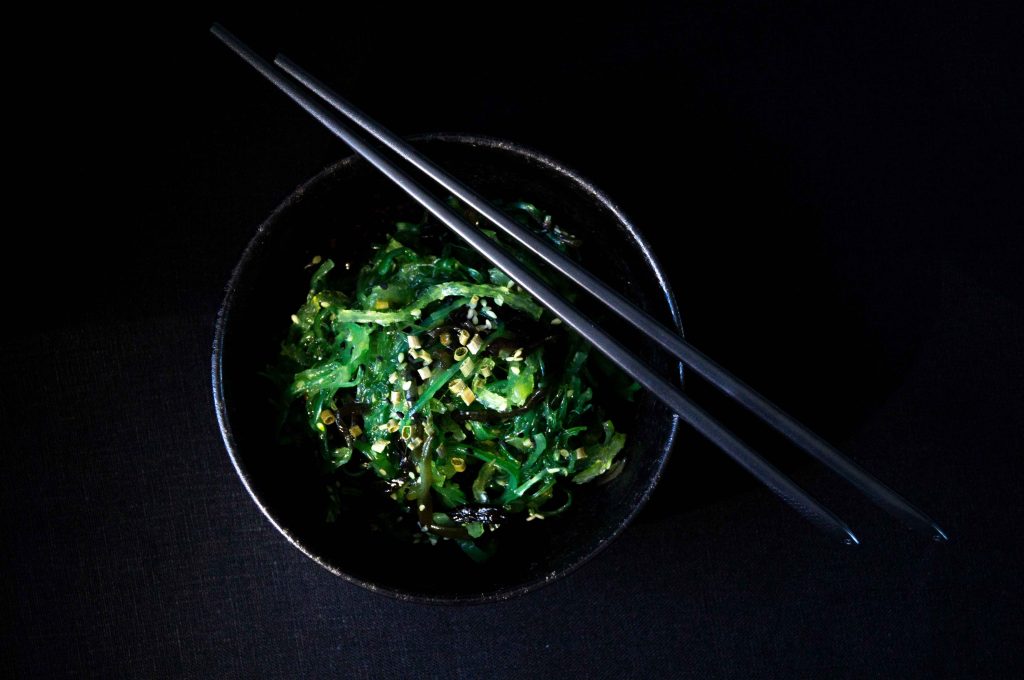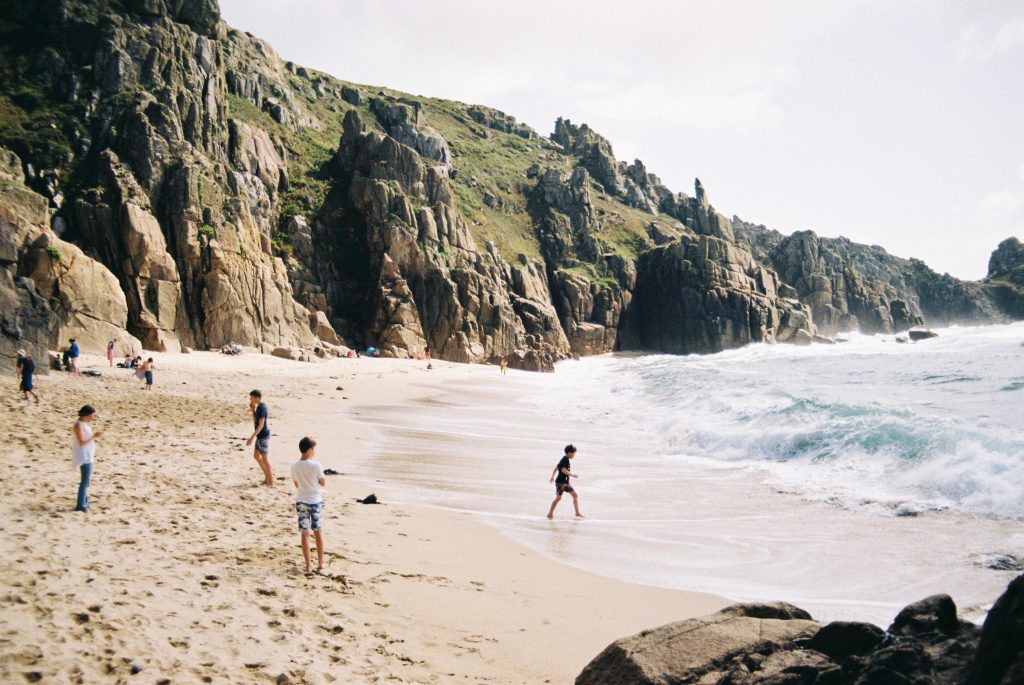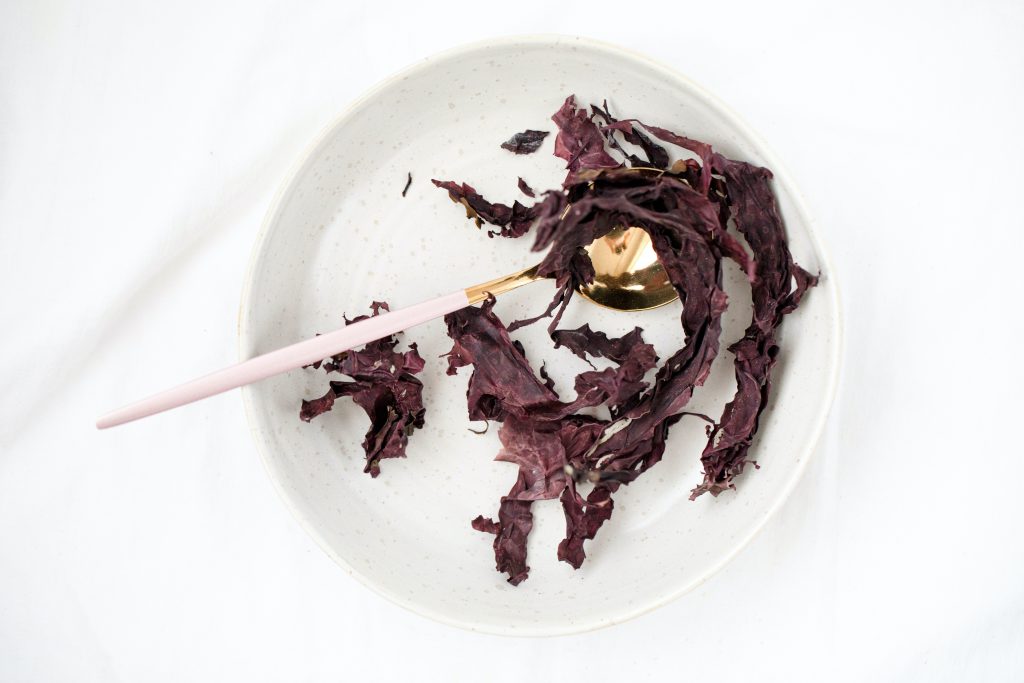Have you ever foraged for seaweed? Maybe you've thought about it, but not known quite where to start. I know the feeling.
I was initially hesitant to forage seaweed. Despite their beauty (have you ever seen a kelp forest?), it’s easy to be put off by the dead clumps of seaweed that wash up on our beaches.
It might not always look that appetizing, but it tastes surprisingly good!
As we’ve been learning, freshly foraged seaweed is the nutritious, delicious and sustainable miracle food that deserves a place on your table.
We’ve put together 10 of our most incredible seaweed foraging facts to convince you. Guaranteed you’ll be rushing out to forage before you even reach the end!
For anyone as fanatical about sushi as I am, giving seaweed foraging a go really is a no brainer.
The flavour of seaweed can confuse some people- the tongue-boggling taste is a relative stranger in western food. It’s flavour is known as Umami- not quite sweet, sour, salty or bitter. It’s the mysterious ‘fifth flavour’ that evaded definition until the 20th century.
We’ll be talking more about this culinary mystery in next week’s investigation. Sign up to our newsletter now to have it delivered straight to your inbox.

The health benefits of seaweed are mind blowing. So much so, they might just render the remainder of this article obsolete.
Seaweeds are the most highly mineralized vegetable on earth. Were you to eat one thing, and one thing only for the rest of your life, Dulse (a native seaweed to the UK) would come closest to providing a fully balanced diet.
Among the most impressive of it’s nutritional components is iodine, which contributes to proper thyroid function. The thyroid manages hormone production, and when under or overactive it can cause a whole host of negative symptoms. These include anxiety, depression, weight fluctuations and poor body temperature management. Adding seaweed to your diet aids thyroid function and balances your hormones- it’s a no brainer!
Though it may seem like an advanced forage, harvesting seaweed is relatively risk free. In the UK, there is only one poisonous seaweed and you’re not likely to find it- it hides in the depths of the channel so you’re unlikely to find it on foot. I’ve been known to cover some serious ground on my hunt for wild food, but diving down to the bottom of the ocean would be a bit of a stretch, even for me.
What this means for you, eager forager, is a wild food harvest that is fun and poison free. There are no dubious doppelgangers to steer clear of, and there’s no reason to worry that your lovingly prepared foraged meal will bring an end to the lives of your closest companions.
Despite the seaweed itself being risk free, We'd still advise that you check the water cleanliness before you grab a bucket and head down to the beach. Our team uses the Safer Seas Service App just to make sure!
I’m a sucker for salt. It just makes everything tastier. But I know that it’s not the most sustainable habit, and that it’s probably not too great for my health.
Luckily for me and all other salt lovers, there’s an alternative.
Seaweed miraculously captures that salty flavour, without actually containing that much salt.
The key to seaweed's flavour profile is glutamate- the unprocessed parent of MSG. This flavour enhancing miracle compound brings a rich umami flavour to seaweed such as Kombu and Dulse. When added to dishes, much like salt, it brings vibrancy to flavour, skyrocketing the quality of your culinary creations.
Unlike MSG, it’s not tied to any potential health effects. As we’ve discovered, seaweed is in fact good for you- jam packed with nutrition and health-boosting minerals.
We’ll be making seaweed salt with our Kitchen Table Revolution members this week- it’s the perfect recipe to reduce your salt intake, boost your health and bring flavour to the table. Join our community to get involved today!
Currently, holidaying abroad is a risky business, meaning that it’s best to sate your travel bug on English shores. For the globetrotters among us, this can make the stretching expanse of summer holidays feel a little dull.
Seaweed foraging might just be the adventure your family needs to break free from boredom, without breaking the bank.
Clambering over rocks to find ropes of seaweed provides plenty of opportunities for peering into mirror topped rock pools. Even now I find myself filled with childlike joy should I spot the ripple of a darting fish or find a sheltering crab underneath a smooth rock.
Learning about the types of seaweed you might find on a coastal forage is a great opportunity to teach your family about nature, and inspire them with wonderment at the natural world.
Best of all, you get to take the fun home. At the end of your day, you can head back with a handful of sand speckled shells and a bucket of freshly foraged seaweed to keep the fun going in the kitchen. You’ll be flavouring your meals with memories for many dinners to come.

Seaweed is incredibly easy to preserve and when stored correctly, can last all year round.
Simply spread it out on a tray and pop it in your dehydrator or oven on a low heat. Once the moisture is gone, you can store it in an airtight container and enjoy its deliciously umami flavour all year round.
A stock of dried seaweed tucked away in the larder is the perfect secret ingredient to bring the most mundane dishes to life with a little je ne sais quoi. It’s surprisingly versatile- we love it swirled into a Bloody Mary. One thing's for sure- everyone will be begging you for the recipe.
This one may seem a little obvious, but it’s true!
Dulse is remarkably common in the UK. With a bucket and a spare half an hour you can easily gather enough to last a whole year.
100g of dried Dulse will set you back an average of £25. At my local beach café, that’ll buy you 10 Cornish ice cream cones!
So skip the supermarket and spend your savings on an ice cream instead. It really is a no-brainer.

Weather prediction is a near impossible science. A quick google for local weather predictions will bring up a multitude of contrasting predictions
Everyone has their favourite app, be it the Met office, BBC or Accuweather. To me it all feels a bit like pinning your hopes on a horse- come race day, who knows what’ll actually happen.
Maybe it’s time we returned to a more traditional method of weather prediction- seaweed.
Long before the barometer, coastal communities would use seaweed to predict the weather. They would hang a piece of seaweed on a hook outside their front door. If it was wet, rain was approaching. If it was dry, the weather would be too.
This may seem like country nonsense, but it’s since been confirmed by science. Seaweed can dehydrate and rehydrate infinitely. When taken out of water, it gets its moisture from the air. So dry seaweed means low levels of air moisture; if it’s wet then air moisture levels are high.
Air moisture levels are still used to predict weather today, but the tools have changed somewhat- strands of seaweed have been swapped out for the hygrometer.
It really goes to show, there can be truth in even the most mind boggling traditions. Why not give it a go with the kids this summer?
Everyone forages for a reason. Be it to put nutritious food on the table, improve your connection with nature or enjoy quality time with your family, we all have our own motivations for getting out and filling our baskets.
Few people would say that they forage to impress your friends, but I'm sure we can all agree that the surprise and wonderment people show when you offer them a foraged treat does feel pretty damn good.
Despite being one of the easiest and safest things to forage, harvesting your own seaweed is still shrouded in mystery, even the most experienced foragers can be a little intimidated. But as we know, there’s really no reason to be.
So this summer, amaze your friends with your newest foraging finds. Try incorporating seaweed into your savoury bakes and meals. You’ll be amazed by the things you can create!
When I think of the world's most sustainable foods, my mind immediately jumps to creepy crawlies. As dedicated as I am to living sustainably, there’s not a chance in hell you’ll catch me with a locust kebab.
Luckily, there are alternative foods that will sustain-ify your diet. According to the Guardian, Seaweed’s pretty high up on the list.
As it grows, seaweed not only absorbs carbon dioxide, it can also reduce the worrying acidification of our oceans, helping restore the increasingly fragile ecosystems of our seas.
It’s also shockingly easy to grow- Seaweed gets all the nutrients it needs from the water around it. It grows rapidly, needing no fertilizer or human intervention. It really is a miracle food.
Scottish company Mara Seaweed and The Cornish Seaweed Company have begus harvesting seaweed on a commercial scale. These companies are bringing sustainable industry to coastal communities, who may have previously relied on less sustainable industries (such as mining and industrial fishing) for income.

So, do we have you convinced?
There’s no time like the present to grab a bucket and head down to the coast. Be sure to tag us in your finds!
If you’d like more info on seaweed foraging, keep an eye on our socials, where we'll be sharing all you could possibly need to know about foraging for seaweed safely and sustainably.
Be sure to sign up to our newsletter to receive our newest tips for gathering this bountiful wild food straight to your inbox.
We’ll also be sharing our seaweed foraging and cooking live with our members in the revolution. Feeling left out? There’s plenty of room at the ever expanding table. Join us here to pull up a seat!